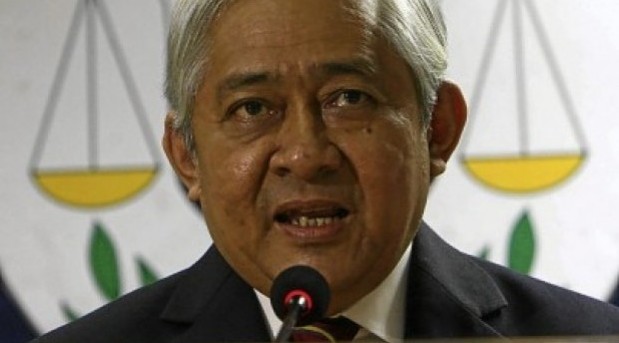Palace asks SC to reset oral argument on DAP
MANILA, Philippines – Malacañang on Thursday asked the Supreme Court reschedule the Jan. 28 oral argument on the legality of President Benigno Aquino III’s Disbursement Acceleration Program (DAP) for March 25.
In their motion, the Palace, through the Office of the Solicitor General told the high court that they are not yet prepared to defend their case.
Government lawyers led by Solicitor-General Francis Jardeleza explained that they have tapped the services of retired Supreme Court Associate Justice Vicente Mendoza as collaborating counsel.
Justice Mendoza, according to Jardeleza, “needs additional time to review the documents to be submitted by the DBM to prepare for the oral arguments.”
“The foregoing motion is not intended to delay the proceedings and is meant solely for the purpose of allowing the respondents to provide the Honorable Court with a coherent, verified and diligently prepared set of evidence packets that can assist in understanding the factual bases of the government’s Disbursement Acceleration Program, and aid it in the resolution of these cases,” the eight page motion stated.
Also, the government lawyers asked the high court that it be given more time or up to March 18 to comply with its order for the Department of Budget and Management to submit “on or before January 21, 2014 a list of the sources of funds brought under the DAP, the uses of such funds pursuant to DAP per project or activity and the legal bases thereof.”
Jardeleza explained that was busy preparing for the 2014 national budget and contributing to “unified effort to provide immediate relief and rehabilitation to the affected areas in the aftermath of typhoon Yolanda.”
“Given the amount and scope of information involved in the present cases, it is not possible for the DBM to collate and verify the ‘uses of the funds pursuant to DAP per project or activity, and the legal thereof’ within the time given by the Honorable Court,” he explained.
The order on the DBM was sought by one of the petitioners, former Iloilo Rep. and Technical Education and Skills Development Authority (TESDA) head Augusto Syjuco Jr., who wanted the disclosure by the Department of Budget and Management (DBM) of sources and beneficiaries of the assailed funds.
Last month, the high court has rescheduled the oral argument upon the request of the Senate and the House of Representatives who wanted to get their own lawyers.
There are nine petitions questioning the legality of DAP. Petitioners include Augusto Syjuco Jr., the other petitioners against DAP are the Volunteers Against Crime and Corruption (VACC), the Confederation for Unity, Recognition and Advancement of Government Employees (Courage), lawyers Jose Malvar Villegas Jr. and Manuelito Luna; the Philippine Constitution Association (Philconsa); the Integrated Bar of the Philippines (IBP); the militant Bayan Muna, Kabataan and Gabriela party-list groups; and Christian sects led by Greco Belgica.
Government lawyers already justified the legality of DAP in their comment saying “DAP is neither a fund nor an appropriation, but a program or an administrative system of prioritizing spending,” the OSG pointed out. “As is obvious from its name, it is a program for accelerating disbursements.”
“What is only unstated in the title of the program – DAP – is that the sources of the funds are from, first, the legitimately-generated savings of the government, and second, the Unprogrammed Fund authorized in any relevant GAA,” it added.
According to the OSG, the DAP was a necessary implication of the President’s authority as Chief Executive pursuant to Article VII, Section 17 of the Constitution and that the DBM is expressly empowered to issue rules and regulations “to carry into full effect the laws relating to matters within its jurisdiction” for the “achievement of more economy and efficiency in the management of government operations.”
“The President, through the DBM, implemented the DAP in order to accelerate public spending, push economic growth, and promote prudent fiscal management. This is a plain executive policy-making, nothing more,” it explained.
Also, the OSG said the Constitution authorizes the President to “augment any item in the general appropriations law for [his] office from the savings in other items of [his] appropriations.”
“Following this rule, a legal authorization can be issued to allow the President to go beyond the original appropriation by augmenting deficient items with savings from other items,” the OSG said.
Related stories
High court to hear oral arguments on DAP
